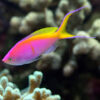Dragons and Their Connection to Natural Elements in Chinese Culture

In Chinese culture, the dragon is a powerful and revered symbol that embodies various aspects of life, including strength, wisdom, and harmony. One of the most fascinating features of the Chinese dragon is its deep connection to the natural elements. Unlike the fearsome, fire-breathing dragons of Western mythology, Chinese dragons are intimately linked with the forces of nature, such as water, wind, and the earth itself. This connection reflects the ancient Chinese understanding of balance and the harmonious relationship between humans and the natural world. In this article, we explore how Chinese dragons are associated with natural elements and the symbolism behind these connections.
1. Dragons and Water: Masters of Rivers, Seas, and Rain
The most significant natural element tied to Chinese dragons is water. In traditional Chinese mythology, dragons are often depicted as rulers of bodies of water, including rivers, seas, and lakes. They are considered the guardians of water and believed to control rainfall, which is vital for agricultural societies that rely on consistent weather for crop growth.
- Rain and Fertility: Chinese dragons are often called upon to bring rain during times of drought, as their control over the water element is thought to ensure the prosperity of the land. Farmers would perform rituals to summon the dragon’s assistance in promoting abundant rainfall for their crops.
- River Guardians: Dragons are also seen as protectors of the rivers and seas. The famous Yellow River in China, a life-giving source of water, is often associated with the dragon. According to legend, the dragon controls the flow of the river, ensuring that it provides sustenance for the people.
The dragon’s association with water underscores its role as a benevolent force that brings balance and harmony to nature, making it a symbol of abundance and life.
2. Dragons and Wind: Controllers of the Sky and Weather
In addition to their dominion over water, Chinese dragons are also seen as masters of wind. The dragon is believed to control the atmospheric forces that influence the weather, including windstorms and clouds. This connection to wind and sky is symbolized in Chinese art, where dragons are often depicted soaring through the clouds, their bodies twisting and turning with the movement of the air.
- Symbolism of Power: The dragon’s ability to summon and control the wind represents its mastery over cosmic forces and its role as a mediator between the heavens and the earth. In Chinese cosmology, the dragon’s control over the wind also signifies its balance with the natural world. The dragon is not a force of destruction; rather, it is a powerful agent of change that helps regulate the elements, ensuring harmony and stability.
- Dragon and Thunder: Some legends even associate the dragon with thunder, as it is believed that the roar of the dragon could cause thunderstorms. This further highlights the dragon’s role as a cosmic entity that bridges the earthly and the divine.
3. Dragons and Earth: Earthly Guardians and the Flow of Qi
Chinese dragons are also strongly connected to the earth and its life-giving energies. In Chinese philosophy, especially in the practice of Feng Shui, the flow of Qi (the vital energy of the universe) is considered crucial for maintaining balance and well-being. Dragons are believed to be the guardians of the earth’s natural energy flows.
- Dragons in Feng Shui: In Feng Shui, the mountain dragon represents strength and protection, often being associated with places where the energy of the land flows most effectively. The positioning of the dragon, such as in the design of buildings or gardens, can influence the flow of Qi, ensuring that positive energy circulates freely throughout the space.
- Earthly Creatures: The dragon is often depicted as a creature of the earth as well as the sky. In this respect, the dragon embodies the interconnection between the heavens and the earth, acting as a bridge that harmonizes the two realms.
4. Dragons and Fire: A Fiery but Benevolent Force
Though Chinese dragons are mostly associated with water and wind, they also have a connection to fire. However, unlike Western dragons, who are often depicted as dangerous fire-breathing creatures, Chinese dragons’ connection to fire is more symbolic than destructive.
- Fire as Transformation: Fire represents transformation and renewal in Chinese culture. The dragon’s association with fire symbolizes its role in purging negative energy and creating space for new growth. This connection to fire emphasizes the dragon’s ability to transform and rebirth the environment it inhabits.
- The Dragon’s Sacred Pearl: In some Chinese myths, the dragon is depicted as possessing a sacred pearl that holds the power of both life and fire. This pearl is often depicted as a glowing orb, symbolizing the eternal balance between opposing elements like fire and water. It represents the dragon’s role as a force of both creation and destruction—a guardian of the cycles of nature.
5. Dragons and the Cosmos: Celestial Forces of Nature
Chinese dragons are not only linked to the earthly elements but also to the cosmic realm. In Chinese cosmology, the dragon plays a role in regulating the natural forces of the universe, including the balance of Yin and Yang. Dragons are often depicted as celestial beings that navigate the heavens, weaving through stars and constellations.
- The Dragon and the Emperors: The Chinese dragon is closely tied to imperial authority, as it was believed that the emperor was the Son of Heaven, the divine ruler connected to the celestial dragon. The emperor’s dragon throne symbolized his role as the earthly representative of the dragon’s cosmic power, protecting and governing both the natural and human worlds.
- Dragon’s Role in the Natural Order: The dragon’s connection to the heavens highlights its universal significance in Chinese thought. It embodies the principle that all things in nature, from the smallest organisms to the largest celestial bodies, are interconnected and operate according to a harmonious, balanced system.
Conclusion
In Chinese culture, the dragon is a multi-dimensional symbol deeply connected to the elements of nature—water, wind, earth, and fire—as well as the broader cosmos. Unlike the fearsome dragons of Western lore, Chinese dragons are benevolent beings that represent the forces of balance, prosperity, and harmony in the natural world. They are not just protectors of nature but also guardians of the universe’s cosmic order, ensuring the continuity of life and the smooth flow of Qi. As such, the Chinese dragon stands as a profound symbol of the deep interconnectedness between humans and the environment, embodying the values of wisdom, strength, and respect for the natural world.

